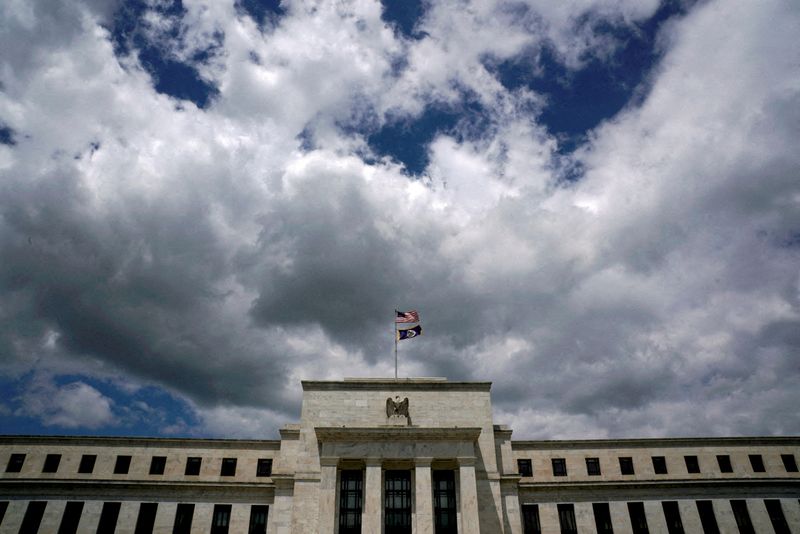By Jamie McGeever
ORLANDO, Florida (Reuters) -It's been a long time coming, but the remarkably tight correlation between U.S. and euro zone interest rate expectations is set to unravel.
The European Central Bank's downward revisions to its growth and inflation outlook on Thursday speak to an economic reality that means the ECB's rate-cutting cycle will start soon, despite President Christine Lagarde's protestations to the contrary.
The U.S. economy, on the other hand is running hot and signs are emerging that some price pressures are re-accelerating. Speculation is growing that the Federal Reserve could raise its long-term 'neutral' interest rate projection later this month.
Understandably, officials from both central banks have leaned against these narratives - the ECB doesn't want to lose its inflation-fighting credibility, and the Fed doesn't want to crash the economy's 'soft' or 'no landing'.
The rhetoric from Fed and ECB officials, aimed at giving themselves as much flexibility as possible, has struck a common tone. As a result, the expected path for U.S. and euro zone rates this year and into 2025 has been almost identical.
The correlation between short-dated U.S. and euro zone government bonds has never been stronger, shackling the euro/dollar exchange rate and depressing FX and bond market volatility.
It's a merry dance that financial markets have played along with. But for how much longer?
"ECB policymakers have been pushing back hard against the idea of rate cuts, maybe as part of a futile effort to support the exchanges rate. But this can't go on much longer, maybe a couple of months," said Dario Perkins, global macro strategist at TS Lombard.
"Reality will set in, for the ECB and markets," he added.
The ECB now expects inflation to fall to 1.9% in the summer of next year and stay there until the end of 2026. It had previously expected inflation to fall below its 2% target by early 2026.
The ECB also cut its 2024 GDP growth forecast to just 0.6%, less than half the Fed's last U.S. growth projection for this year of 1.4%. This could be raised later this month.
NO FED CUTS THIS YEAR?
Torsten Slok, chief economist and partner at Apollo Global Management (NYSE:APO), on Thursday highlighted the yawning chasm opening up between the U.S. and German growth outlooks for this year.
Last week, citing a reacceleration in U.S. growth and price pressures, Slok issued one of the first calls from a major financial institution that the Fed will not cut rates at all this year.
"The bottom line is that the Fed will spend most of 2024 fighting inflation," he wrote on March 1. "As a result, the Fed will not cut rates this year and rates are going to stay higher for longer."
Markets haven't begun pricing in this divergence yet. The euro has depreciated by less than 1% against the dollar this year, and recent research by State Street (NYSE:STT) found that two-year U.S. and German sovereign bond yields is at an all-time high.
Current market pricing has both central banks delivering their first rate cut in the middle of this year, easing policy by around 90 to 95 basis points by the end of December, and by around 125 bps a year from now.
But this tight relationship is likely to be tested.
Analysts at Deutsche Bank see euro zone inflation returning to 2% by the middle of this year, a year earlier than the ECB expects, and is penciling in 150 bps of rate cuts this year.
For financial markets, particularly currencies, it is the terminal level of interest rates that matters more than when the starting gun for rate cuts is fired.

"We see the risks as skewed to the downside for EURUSD this year, with the European growth/inflation/fiscal mix more conducive to a larger ECB cutting cycle relative to the Fed," Deutsche analysts wrote in a recent note.
(The opinions expressed here are those of the author, a columnist for Reuters.)
(By Jamie McGeever; Editing by Josie Kao)